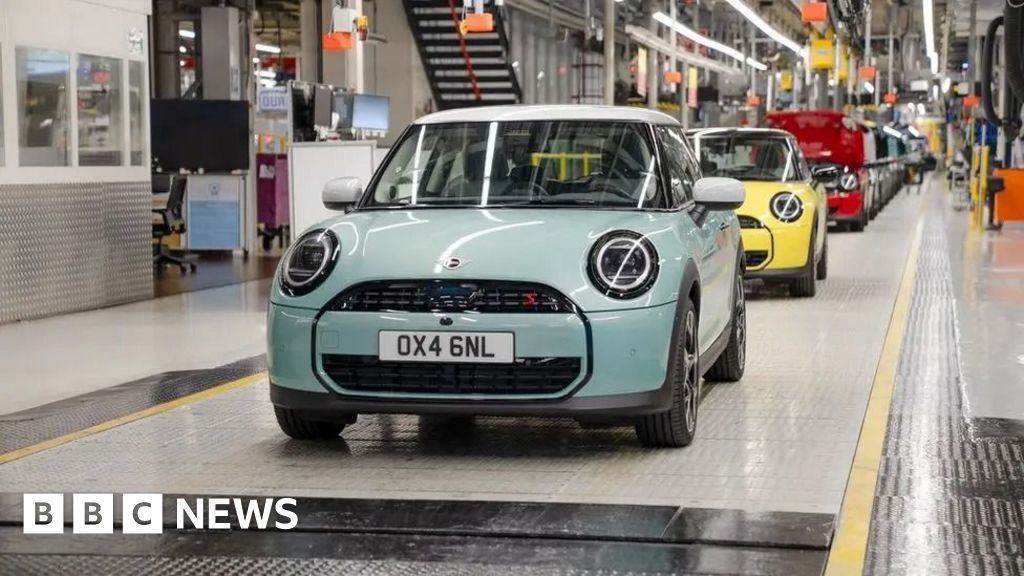
BMW has announced a delay in restarting electric vehicle production at its Mini plant in Oxford.
The renowned automaker cited “numerous uncertainties facing the automotive sector” as the reason for postponing the £600 million upgrade at its Cowley facility.
In addition, BMW has opted not to accept a related £60 million government grant, although it remains engaged in ongoing discussions.
The UK’s automotive industry has been involved in prolonged discussions with the government regarding its electric vehicle production targets.
Auto manufacturers have expressed concerns that the anticipated sales of electric vehicles for this year and the following years may be overly ambitious.
Earlier this year, the government held a rapid consultation to discuss potential changes to the zero emission vehicle (ZEV) mandate policy.
Last November, Stellantis reported that the ZEV mandate was a contributing factor in its decision to close its Luton van factory.
In a statement, BMW, the owner of Mini, emphasized that “Plant Oxford is central to Mini production, manufacturing, and exporting various models that are in high demand both in the UK and globally.”
The automaker stated, “However, due to the multiple uncertainties impacting the automotive industry, the BMW Group is currently evaluating when to resume battery-electric Mini production in Oxford.”
They noted that much of the planned investment is moving forward, with construction progressing well on initiatives aimed at making the plant future-ready, including the development of a new high-tech logistics facility.
The statement continued: “We have updated the UK government about our decision to reassess the timeline for reintroducing battery-electric production in Oxford.”
As part of this conversation, it was decided that the previously announced grant would not be accepted, yet discussions regarding future plans remain active.
In 2023, BMW revealed plans to invest hundreds of millions of pounds to prepare the Oxford Mini factory for the production of a new generation of electric vehicles.
The launch of two new electric Mini models had originally been scheduled for 2026.
The Department for Transport (DfT) acknowledged the challenges faced by car manufacturers and is attentive to their concerns.
The DfT stated it is consulting on “reinstating the 2030 electric vehicle deadline while also safeguarding jobs,” a measure that has garnered support from a majority of manufacturers aiming to meet their ZEV mandate targets.
Moreover, the DfT is investing over £2.3 billion to assist both the industry and consumers in transitioning to electric vehicles.









